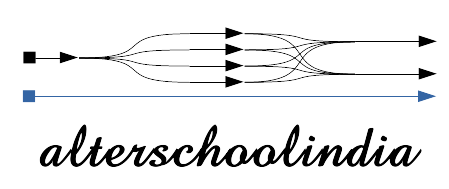A given statement is said to be false when there is enough evidence and logical explanation against it. ‘An apple is orange in color’ is a false statement as we all know that an apple never turns orange by any given natural condition. In fact, there is also a pre-established truth in play that ‘Apples are Red’. Thus, a statement, hypothesis or theory has falsifiability if it can be logically proven false by another basic statement. A simple example would be making a claim that “All swans are white.”. This statement is falsifiable using the basic statement, “In 1697, during the Dutch explorer William de Vlamingh expedition, there were black swans on the shores of the Swan River in Australia”, which contradicts the initial claim. The act of disproving content based on a logical counter statement is known as Falsification.
A simpler example can be that someone might claim "the earth is younger than many scientists state, and in fact was created to appear as though it was older through deceptive fossils and such.” This is a claim that is unfalsifiable because it is a theory that can never be shown to be false. If you were to present such a person with fossils, geological data or arguments about the nature of compounds in the ozone, they could refute the argument by saying that your evidence was fabricated to appeared that way and isn’t valid.
Importantly, falsifiability doesn’t mean that there are currently arguments against a theory, only that it is possible to imagine some kind of argument which would invalidate it. Falsifiability says nothing about an argument's inherent validity or correctness. It is only the minimum trait required of a claim that allows it to be engaged with in a scientific manner – a dividing line between what is considered science and what isn’t. Another important point is that falsifiability is not any claim that has yet to be proven true. After all, a conjecture that hasn’t been proven yet is just a hypothesis
According to Popper, many branches of applied science, especially social science, are not truly scientific because they have no potential for falsification.
Anthropology and sociology, for example, often use case studies to observe people in their natural environment without actually testing any specific hypotheses or theories.
While such studies and ideas are not falsifiable, most would agree that they are scientific because they significantly advance human knowledge.
Thus, falsifiability is not a simple black and white matter. The Raven Paradox shows the inherent danger of relying on falsifiability, because very few scientific experiments can measure all of the data, and necessarily rely upon generalization.
Reference: Falsifiability - Explorable


 Got any questions?
Got any questions?